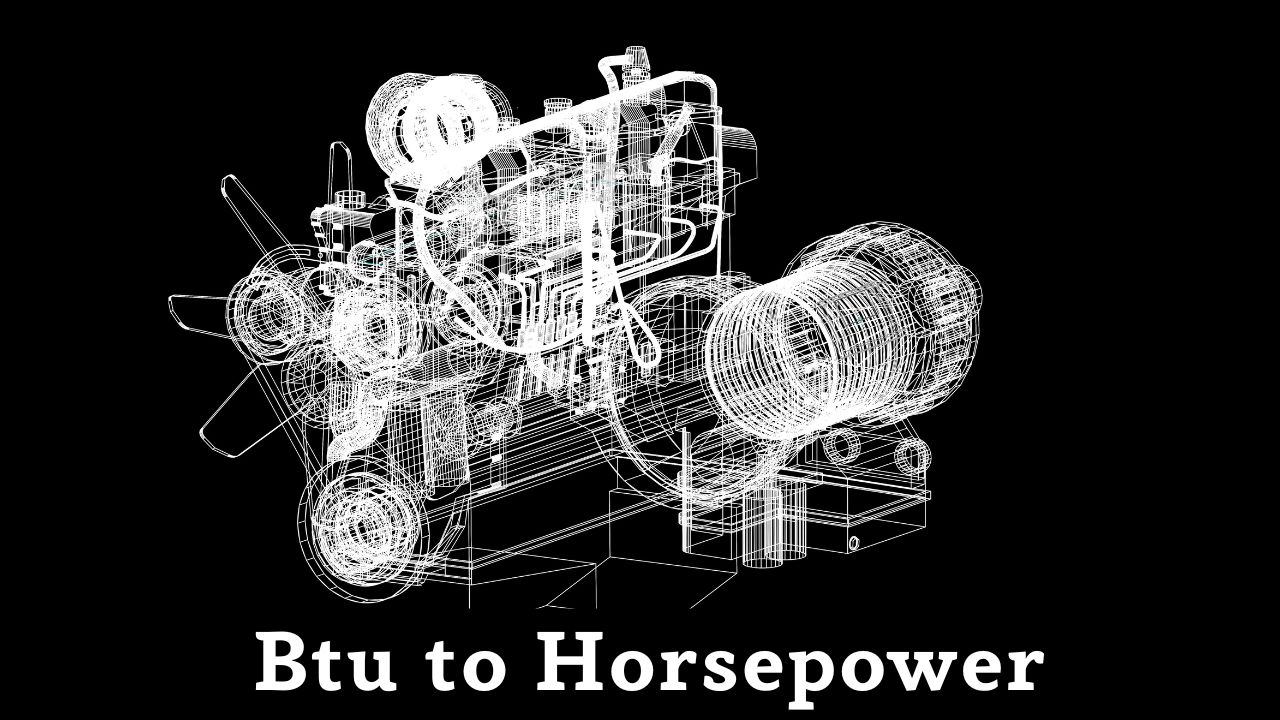BTU to Horsepower Converter
Convert power from BTU per hour (BTU/h) to different types of horsepower (hp).

Table of Contents
British Thermal Units per Hour (BTU/h) to Horsepower (hp) Conversion
To convert British Thermal Units per hour (BTU/h) to different types of horsepower (hp), you can use the following formulas:
Conversion Formulas
- Mechanical Horsepower (hp(I)): hp(I) = BTU/h × 0.000393
- Electric Horsepower (hp(E)): hp(E) = BTU/h × 0.000393
- Metric Horsepower (hp(M)): hp(M) = BTU/h × 0.000398
- Boiler Horsepower (hp(S)): hp(S) = BTU/h × 2.9876E-5
Key Insight:
These formulas are essential for converting energy transfer rates from BTU/h to various horsepower measurements used in mechanical and electrical systems.
British Thermal Units per Hour (BTU/h)
A British Thermal Unit (BTU) is a unit of heat energy. It is defined as the amount of heat required to raise the temperature of one pound of water by one degree Fahrenheit.
- Scientific Definition: The amount of heat energy transferred per hour.
- Real-world Example: A heating system rated at 10,000 BTU/h can provide that much heat in one hour.
- Common Usage: Used in heating and cooling systems to specify capacity.
Horsepower (hp)
Horsepower is a unit of power used to measure the rate of work done:
- Mechanical Horsepower (hp(I)): Commonly used in the automotive industry.
- Electric Horsepower (hp(E)): Used to describe the power output of electric motors.
- Metric Horsepower (hp(M)): Commonly used in Europe and other regions.
- Boiler Horsepower (hp(S)): Used in steam boilers and heating systems.
BTU to Horsepower Conversion Table
Formula: BTU/hr = kW ÷ 0.00029307107
| Power (BTU/h) | Mechanical HP (hp(I)) | Electric HP (hp(E)) | Metric HP (hp(M)) | Boiler HP (hp(S)) |
|---|---|---|---|---|
| 1000 BTU/h | 0.3930 hp(I) | 0.3930 hp(E) | 0.3980 hp(M) | 0.00003 hp(S) |
| 5000 BTU/h | 1.9650 hp(I) | 1.9650 hp(E) | 1.9900 hp(M) | 0.00015 hp(S) |
| 10000 BTU/h | 3.9300 hp(I) | 3.9300 hp(E) | 3.9800 hp(M) | 0.00030 hp(S) |
| 20000 BTU/h | 7.8600 hp(I) | 7.8600 hp(E) | 7.9600 hp(M) | 0.00060 hp(S) |
| 50000 BTU/h | 19.6500 hp(I) | 19.6500 hp(E) | 19.9000 hp(M) | 0.00150 hp(S) |
| 100000 BTU/h | 39.3000 hp(I) | 39.3000 hp(E) | 39.8000 hp(M) | 0.00300 hp(S) |
